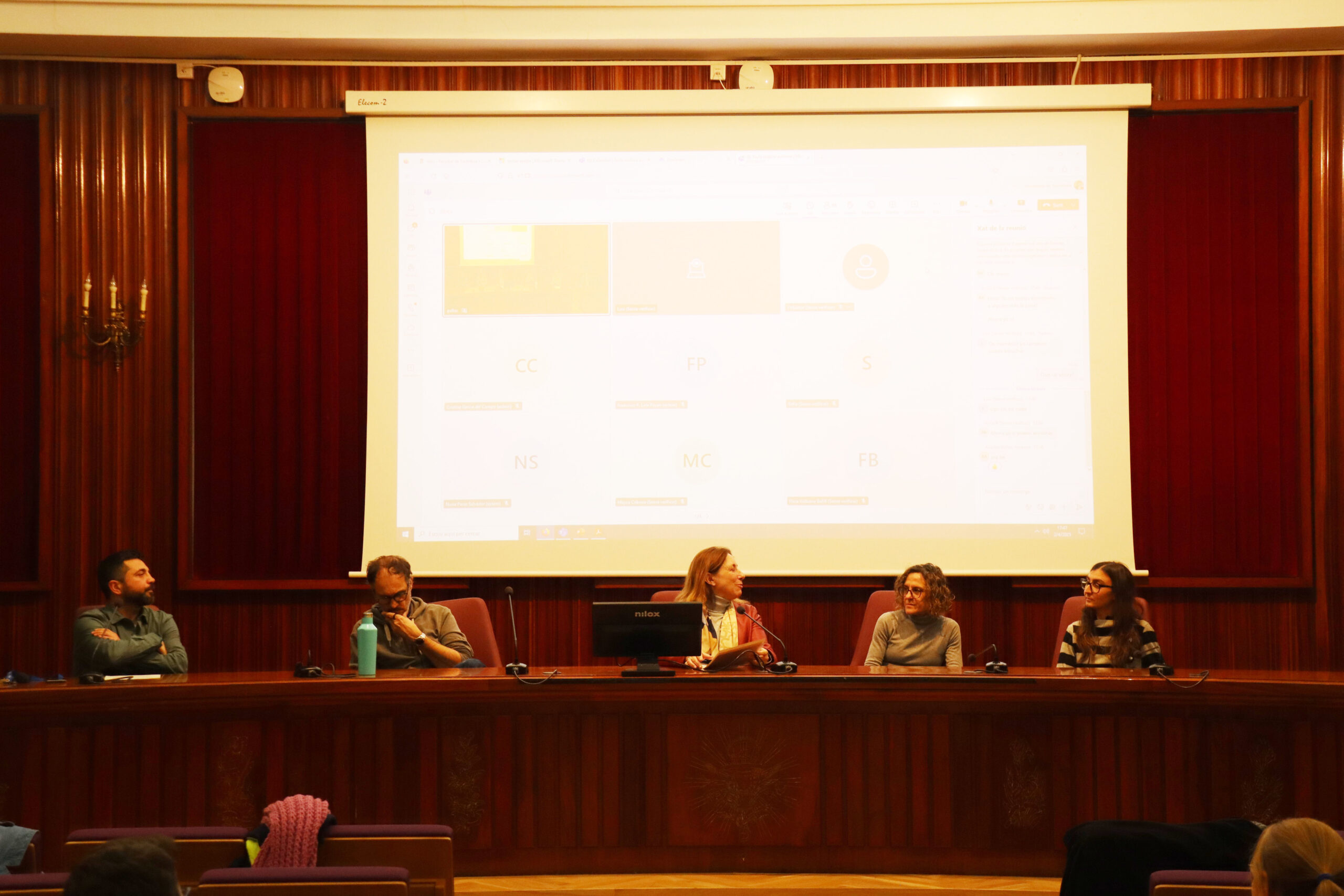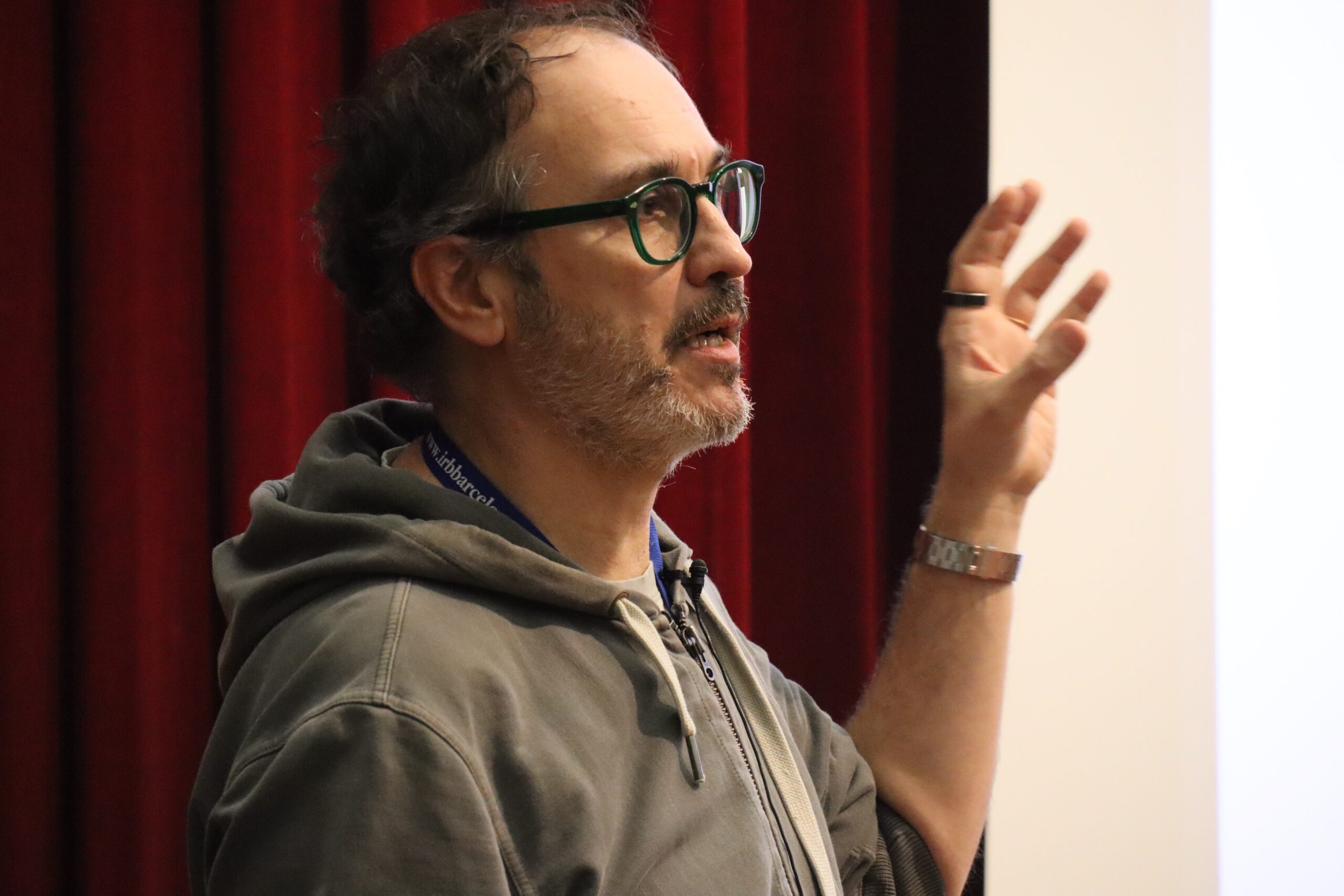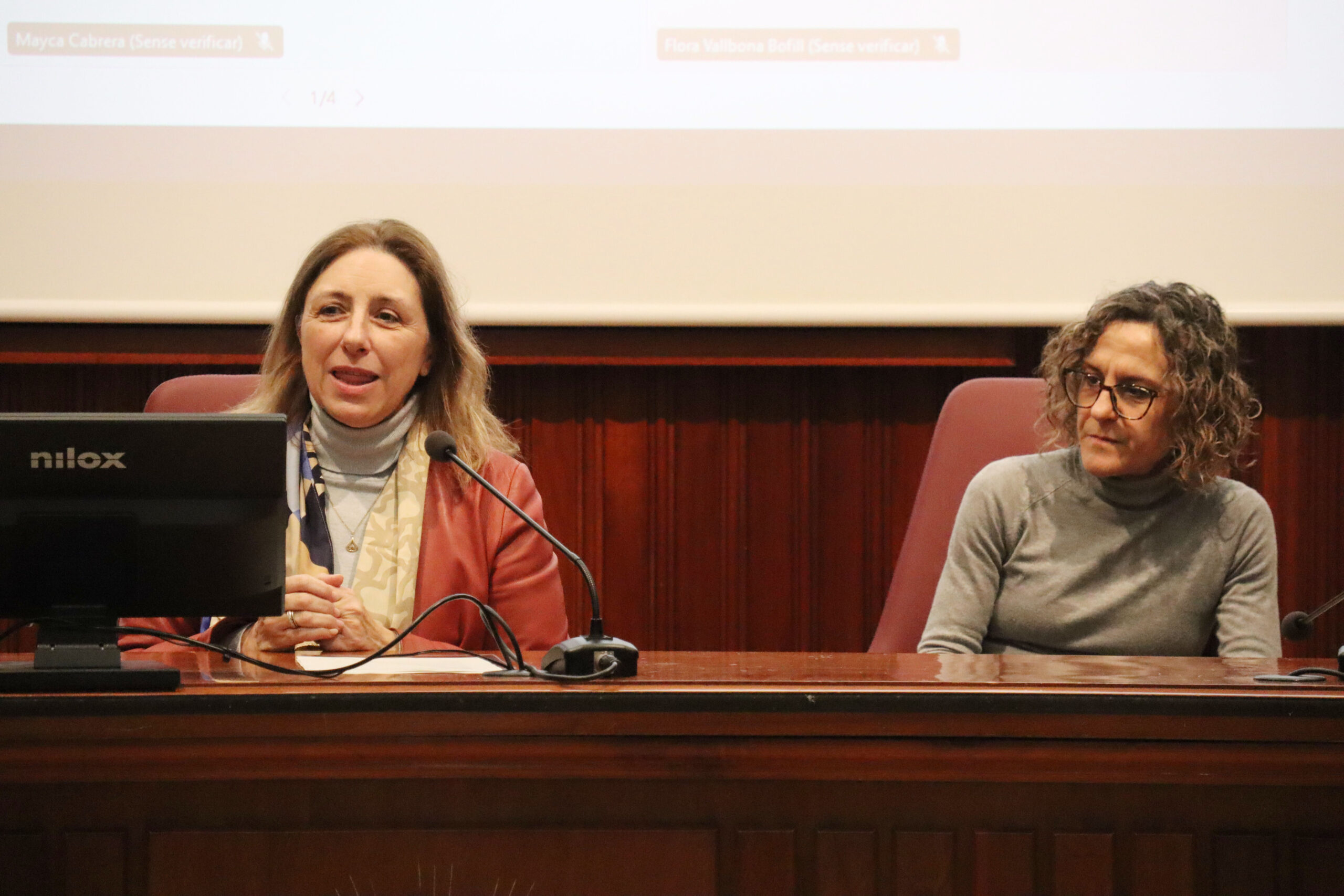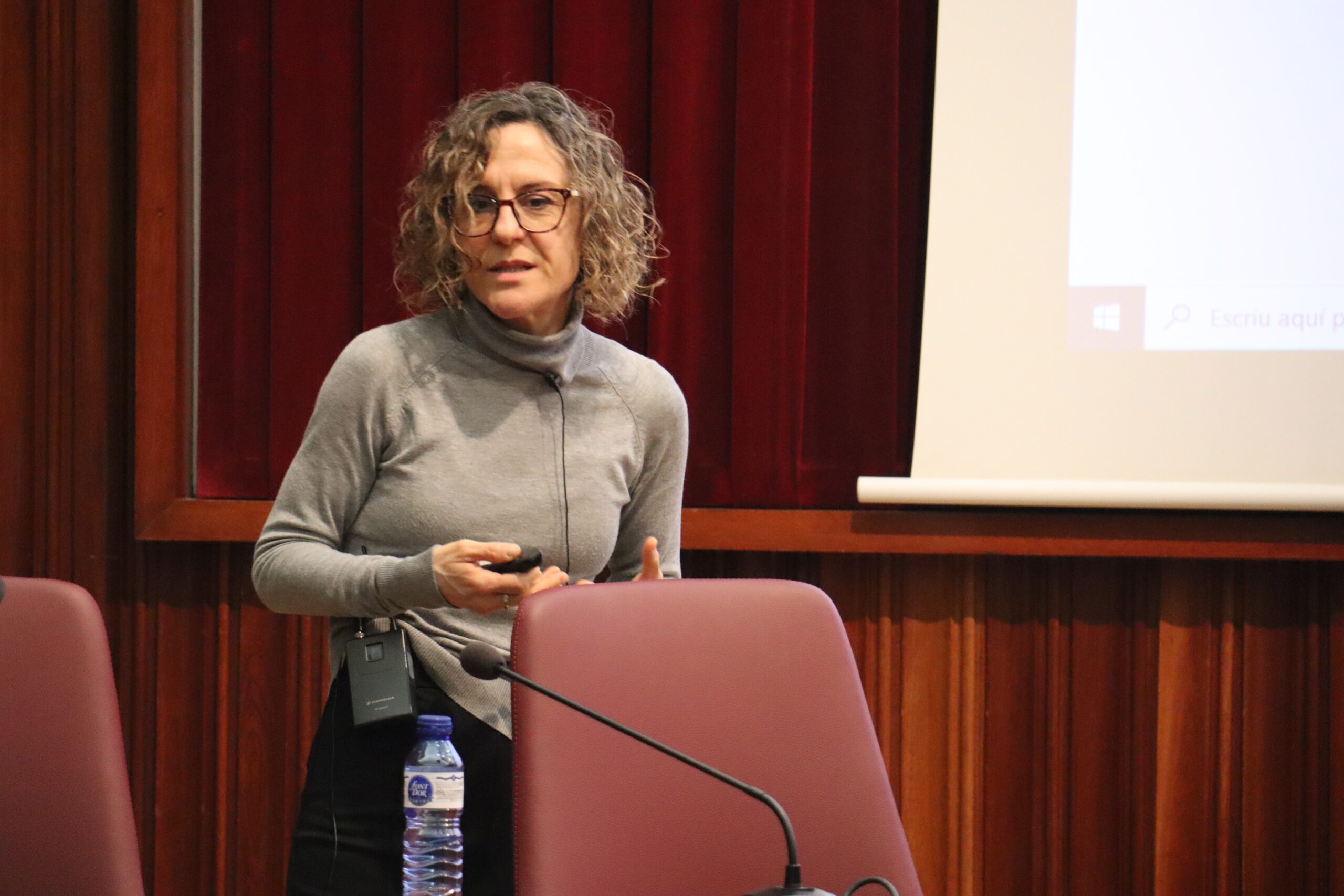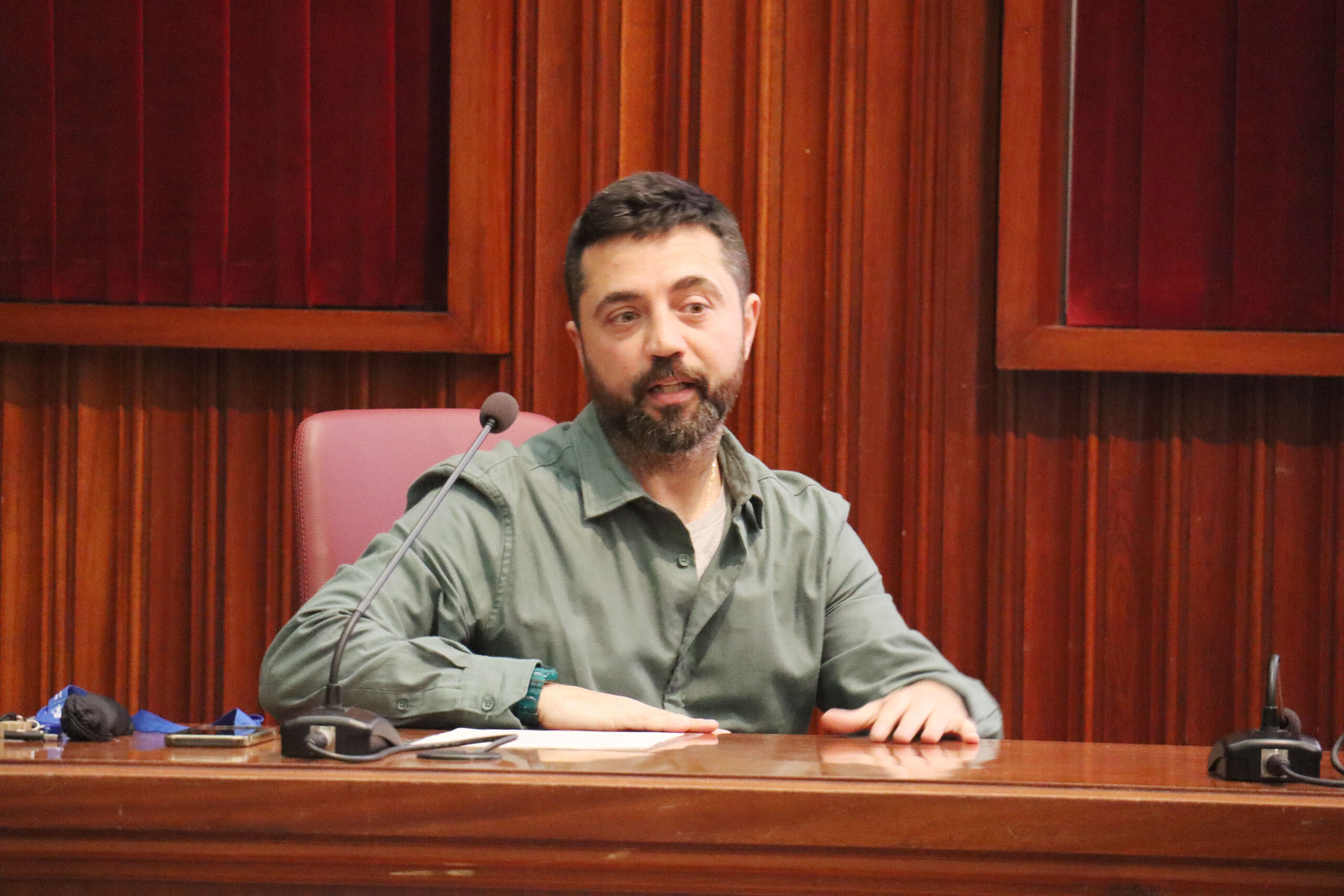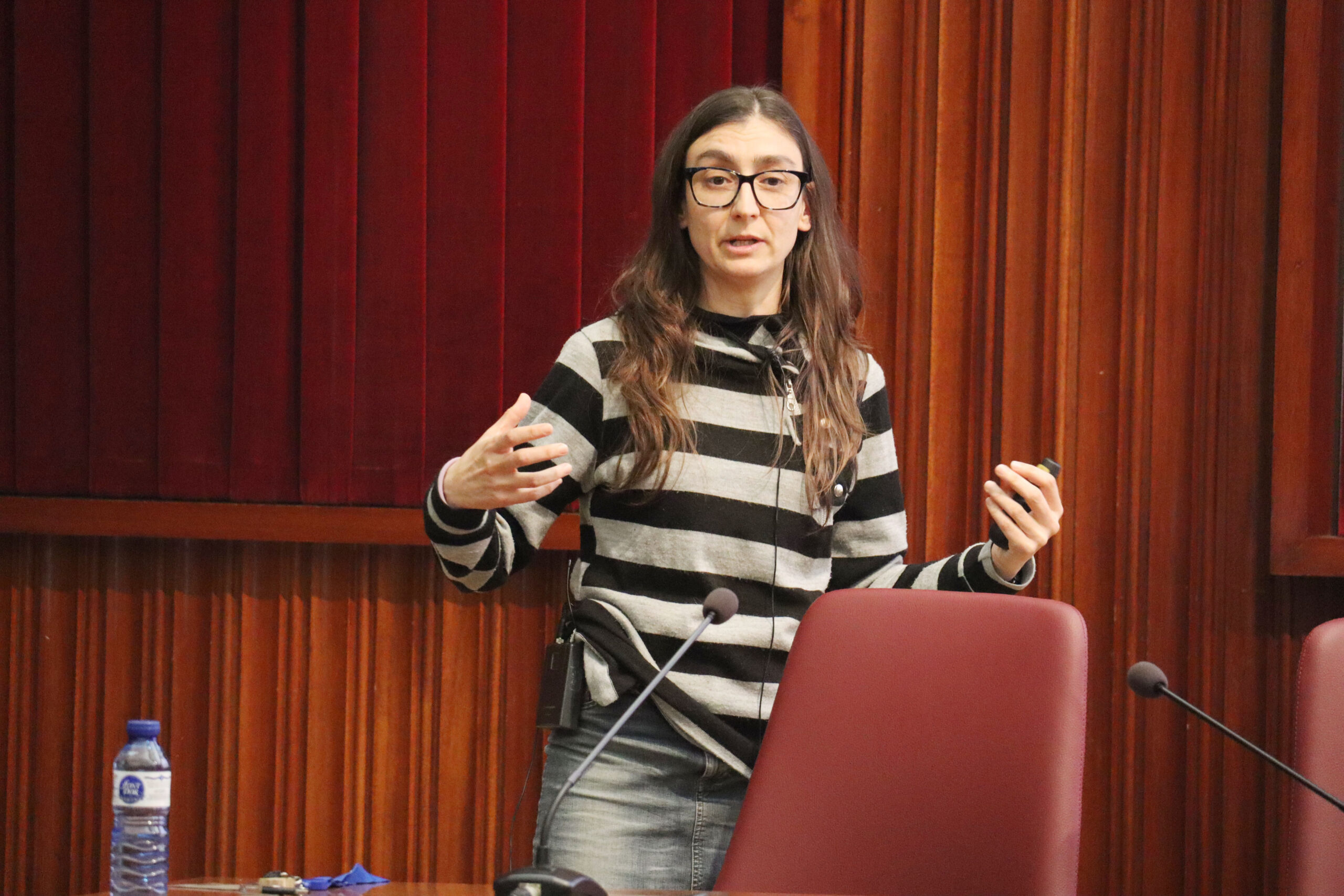On April 2, 2025, World Autism Awareness Day, the UB – Dr. Antoni Esteve i Subirana Chair of Research in Pharmacology organized a face-to-face and streaming round table on the different therapeutic approaches in the care of patients with autism spectrum disorder (ASD).
At the event, which took place in the Aula Magna of the Faculty of Pharmacy and Food Sciences of the University of Barcelona, different experts in biomedical research, pharmacology and educational interventions discussed molecular causes, pharmacological strategies and complementary non-pharmacological approaches for the treatment of autism spectrum disorder.
The aim was to provide a comprehensive view of the therapeutic options available, fostering dialogue between professionals from different disciplines and exploring new forms of intervention to improve the quality of life of people with autism spectrum disorder.
The session was opened by Xavier Salvatella, researcher at the Institute for Biomedical Research IRB Barcelona. There he leads a research group focused on investigating the biological functions of intrinsically disordered domains in multidomain proteins, such as the androgen receptor, a nuclear hormone receptor, and CPEB4, a translation regulator. His research explores the role of these domains in neuromuscular and neurodevelopmental diseases, such as autism spectrum disorder.
“There are no drugs to cure autism but there are drugs to alleviate the discomfort that accompanies it”
Next, Maria J. Portella, a researcher at the Sant Pau Research Institute, gave a more general overview of how the brain of a person with autism spectrum disorder works. During her presentation, she emphasised the underdiagnosis that usually occurs in women with ASD and highlighted the psychiatric comorbidity that usually accompanies this disorder. “There are no drugs to cure autism but there are drugs to alleviate the discomfort that accompanies it,” the researcher stressed.
Finally, the educator of the Escoles Fàsia Àngels Permuy addressed the different therapies that currently exist to improve the quality of life of children with ASD. “The family is a key element for the well-being and learning of children with this disorder,” said the educator.
The round table was moderated by Christian Griñán Ferré, professor of the Pharmacology Unit of the Faculty of Pharmacy and Food Sciences of the University of Barcelona and principal investigator of the Open Doors Project: Transforming lives with autism.
KEYWORDS | Basic pharmacology, Clinical pharmacology, social pharmacology.


